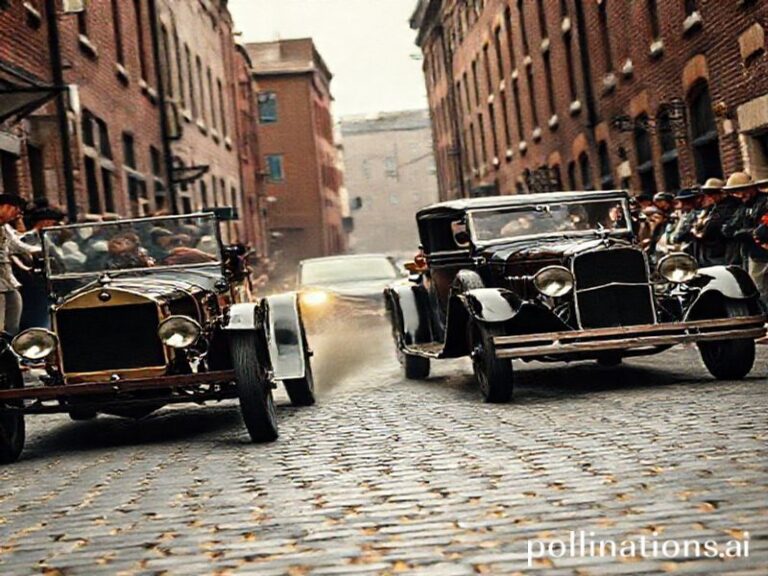Benicio del Toro: Smuggling Global Cool Across Every Border the World Still Pretends to Patrol
Benicio del Toro: The Last Smuggler of Global Cool
by “The Unimpressed Correspondent” filing from somewhere with questionable Wi-Fi and excellent rum
There are two kinds of passports on Earth: the blue ones that guarantee you will stand in the “All Others” lane at immigration, and the one that Benicio del Toro carries in his squint. Wherever that document goes—Havana, Hong Kong, or the ninth circle of a Sicilian customs desk—it somehow persuades officials that the rules are a mild suggestion. This is not mere celebrity privilege; it is a geopolitical superpower. When the man who once played Che Guevara later saunters through real-life Cuban security without removing his sunglasses, you realize ideological borders are as flexible as a Netflix licensing deal.
Start with the obvious: Del Toro is Puerto Rican, which in the Venn diagram of identity sits at the crossroads of U.S. colony, Caribbean swagger, and Latin American revolutionary chic. That gives him a triple citizenship in global narratives. To Washington, he is a domestic talent who can be summoned for Senate hearings on Puerto Rican debt; to Paris, he is the brooding embodiment of post-colonial cool; to Beijing, he is the guy who sells out art-house theaters without needing a Marvel franchise. In short, he is the only man who can simultaneously be colonizer and colonized, blockbuster and subversive, depending on which customs officer is flipping through his mental dossier.
The international significance? While nations erect tariffs, firewalls, and 280-character trade wars, Del Toro traffics in the last contraband no customs dog can sniff: mystique. In the age of overexposure, when your average actor live-streams breakfast, Del Toro still speaks in paragraphs punctuated by cigarette pauses. That scarcity turns him into a black-market luxury good. The Swiss hoard watches; the Saudis, oil futures; cinephiles hoard Del Toro screen time, exporting it across torrent sites like digital cigars rolled on the thighs of forbidden narrative.
Consider the macroeconomics. When he signed on to star in the Sicario franchise—a series that weaponizes the U.S.-Mexico border into a two-hour anxiety attack—ticket sales spiked in Bogotá, Berlin, and Bangkok. Why? Because nothing sells like vicarious dread. Global audiences love watching the American empire stub its toe on a desert fence while a Puerto Rican man with a thousand-yard stare explains that morality is just another customs regulation. The films grossed enough to finance a small banana republic, proving that cinematic narco-noir is now a more reliable export than actual bananas.
Meanwhile, his humanitarian work is a master class in soft-power laundering. Del Toro is a UNICEF ambassador who visits Syrian refugee camps wearing the same crumpled suit he wore to Cannes. The message, subtextually, is that suffering is the true red carpet, and the cameras should pan left. European donors, embarrassed by their own asylum bureaucracy, can point to Del Toro’s furrowed brow and say, “See? We care.” It’s guilt offsetting, Hollywood-style: for every ton of CO₂ emitted by a private jet, you adopt one traumatized child on camera.
Yet the cynic’s kicker is this: despite his rebel brand, Del Toro is ultimately a state-sanctioned smuggler. The U.S. Treasury still cashes his residuals; the Chinese censor still trims his gunshots; the Cannes jury still applauds on cue. He traffics in edge, but the edge has been safety-proofed by Dolby Atmos. The world’s most famous smuggler is, in fact, fully declared on the manifest. Irony, like contraband, is best hidden in plain sight.
So what does it all mean for the rest of us passport mortals? Simply that in an era when borders harden and algorithms flatten culture into TikTok paste, Benicio del Toro remains a reminder that charisma is the only currency never devalued by the Fed, the ECB, or the IMF. You can’t download his shrug; you can only watch it flicker across a screen and wonder why your own customs officer never waves you through with a wink.
In the end, we queue, he glides. The line between us isn’t talent—it’s the unspoken agreement that some people are born with diplomatic immunity from the banal. And the rest of us? We stand behind the rope, clutching our legally stamped boredom, secretly hoping the next revolution will be narrated by that same gravelly voice: “Traffic’s gonna get worse before it gets better.”







